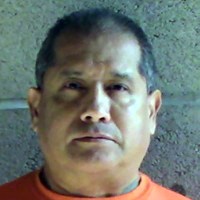Now that Arizona has resumed executions, Attorney General Mark Brnovich is eager to use his newly-renovated gas chamber or his killer drug, pentobarbital, on two death-row inmates whose attorneys admitted they botched both cases.

The U.S Supreme Court heard the case on December 8, after two different 9th Circuit panels ruled that men deserve a fair trial.
One man, David Ramirez, was convicted and sentenced to death for the 1989 stabbing and murders of his girlfriend and her 15-year-old daughter in Phoenix.
His trial attorney failed to mention Ramirez is retarded.
A different 9th Circuit panel found the trial attorney for Barry Lee Jones of Tucson–who was sentenced to death for the 1994 sexual assault and death of his girlfriend’s 4-year daughter, Rachel–failed to introduce evidence proving the girl’s injuries happened days earlier when Jones has an airtight alibi.
The Procedural Rub
The rub is that in both cases, the mistakes of trial counsel to not introduce medical claims or mitigating factors were not raised in a state appeals court.
They were introduced for the first time when the case reached the federal level.
The law that allows Arizona to argue the case, The Antiterrorism and Effective Death Penalty Act of 1996 (AEDPA), was enacted to expedite capital appeals.
In fact, the law has quashed defendants’ rights, as courts often refuse to hear claims that might exonerate innocent people.

Two Fairness Precedents Considered
In 2012, the U.S. Supreme Court considered the precedent created by the AEDPA in Martinez. V. Ryan.
The Court decided to allow federal courts to consider an “ineffective assistance of trial counsel” claim even if that claim is not raised in the state appeal trial.
However, the law does not address an AEDA clause that prohibits a defendant from introducing new evidence in a Federal appeal that was not first brought in state court.
Arizona’s Solicitor General Grun Roysden told the justices that “Congress spoke clearly” in writing AEDPA and that it was “precisely the opposite” of the 9th Circuit ruling.
Roysden said defendants must “go to state court and file a second or successive petition” to prove they’re not guilty.
Robert Loeb, the attorney for Ramirez and Jones, pointed to another precedent, Strickland v. Washington, which holds a defendant’s right to counsel is violated when his attorneys perform substandardly.
Justices are Skeptical
Justice Samuel Alito asked questions critical of Ramirez’s and Jones’ appeal.
However, Justices Clarence Thomas, Brett Kavanaugh, and Chief Justice John Roberts questioned Arizona’s antics.
Justice Thomas said, “it seems rather odd that…we will excuse a default under Martinez, but not allow the prisoner to make his underlying claim or develop his evidence.”
The Chief said, “If you do get the right to raise the claim for the first time because your counsel was incompetent, surely you have the right to get the evidence that’s necessary to support your claim.”
Arizona Would Gravely Erode Criminal Justice
Christine Swarns, executive director of the Innocence Project, wrote in a New York Times op ed piece, that “Arizona’s position would gravely erode the foundation of the system, further making those that have already suffered the devastating and unjust consequences of incompetent lawyering.”
Almost 3,000 prisoners have been exonerated in the U.S. since 1989, including 186 innocent people who were condemned to death, Swarns wrote.
Swarns concludes that if Arizona prevails, “untold thousands of wrongfully convicted innocent people will be left in the nightmarish situation of having no court to whom they can turn for justice.”
Discover more from Blog for Arizona
Subscribe to get the latest posts sent to your email.
